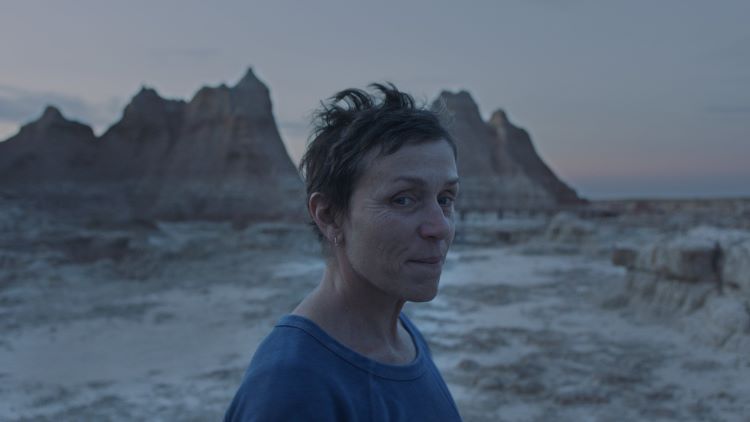By Noah Gittell
This year’s crop of Best Picture nominees is unusually great. In prior years, films like “Minari,” “Judas and the Black Messiah,” “Sound of Metal,” and “Promising Young Woman” – original works made by and starring people of color – would have probably been relegated to the lesser categories, but this year they’re among the final contenders. This is due in part to the major studios holding back some of their prestige Oscar fare, like Steven Spielberg’s “West Side Story,” for a time when people are going to the movies again, but we should be happy for the exceedingly strong field nonetheless.
“Nomadland” is going to win Best Picture, but it’s hard to complain about that either. In many ways, it’s a startlingly bold work. A chronicle of modern-day nomads who, due to economic and emotional circumstances, have chosen to live on the road, following seasonal work and taking low-paying jobs that cover their modest needs, “Nomadland” is a film that finds the common space between seemingly disparate elements. It’s both documentary and fiction; many of its characters are real-life nomads telling their actual stories, but the film’s protagonist Fern (Frances McDormand) and her romantic interest Dave (David Strathairn) are fictional. It’s a portrayal of both a community and a character study of one of its members. It examines the practical and emotional underpinnings of the nomad lifestyle, and seamlessly tells a story that’s at once personal and political.
It almost sounds too good to win Best Picture, but maybe it’s not. While “Nomadland” deserves credit for taking on an underreported subject with an innovative approach, it elides certain harder realities in order to remain inoffensive. Much has already been written about the film’s treatment of Amazon, where Fern takes on seasonal part-time work. She calls it “great money” and has nary a bad word to say about Amazon’s labor practices; it’s notable that the book on which “Nomadland” is based was much harsher on the tech behemoth, and critics have wondered if Zhao and her team made certain creative concessions in order to gain access to a real Amazon warehouse. I’d argue the film is more critical of Amazon than it at first appears – the factory juts out of the desert landscape like a blight on nature, and the warehouse floor feels like a prison – but it’s fair to wonder if a film that hewed closer to the book’s condemnation of it would have made it this far with an awards body that is increasingly reliant on Amazon Prime for employment.
Another flaw in its impressive facade is how strenuously it conveys its themes. Almost all the real-life nomads are driven to the road by grief over the loss of a loved one. and the film reminds us of this at every turn. The nomads, who were presumably coached by Zhao, often speak to each other in surprisingly direct terms about their loss. For one particularly long stretch of film, it seems like every scene is about grief, either Fern’s or one of her friends. A particularly on-the-nose bit of dialogue, in which one character opines that what he likes about the nomad lifestyle is that he never has to say “goodbye” to anyone, instead opting for, “I’ll see you down the road,” is repeated twice, as if Zhao wasn’t sure the viewer was smart enough to understand its relevance the first time around. This didacticism stops the lilting, lyrical narrative in its tracks.
It’s a surprising tack for a film built so definitively on a hands-off approach to its characters. “Nomadland” neither judges nor celebrates them. Fern’s choice to live without attachments is lightly probed, but Zhao isn’t interested in digging beneath her grief, simply in chronicling it. But weirdly, she does not extend this respect to the viewer. She underlines her themes, bolds them, italicizes them, and puts them in extra large font just to make sure there is no misunderstanding. It’s unnecessary and wrong. Fern’s story is about loss and fear and coping and struggling to find agency in a world changing too quickly for us to process, all topics that resonate deeply here in 2021. The message would have been so much more powerful if the film had allowed us to rise up to meet it.
Then again, that’s why it’s going to win. The Best Picture winners of the last decade or so all fit neatly into this prototype. They take on uncomfortable subjects like racism (“Green Book”), homophobia (“Moonlight”), child abuse (“Spotlight”), and income inequality (“Parasite”), and tell cathartic narratives that leaves viewers comforted in the end. In its own way, “Nomadland” does the same by telling the viewer what to think, instead of letting us live in its beautiful uncertainties.















